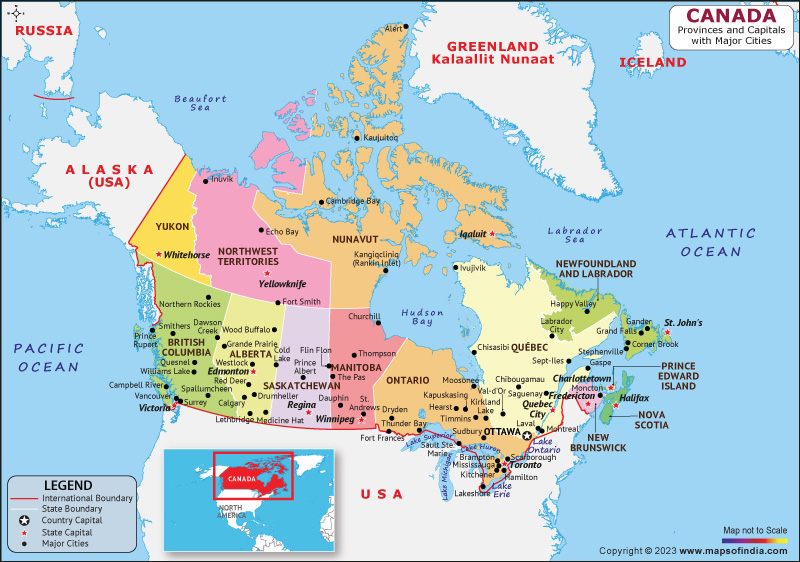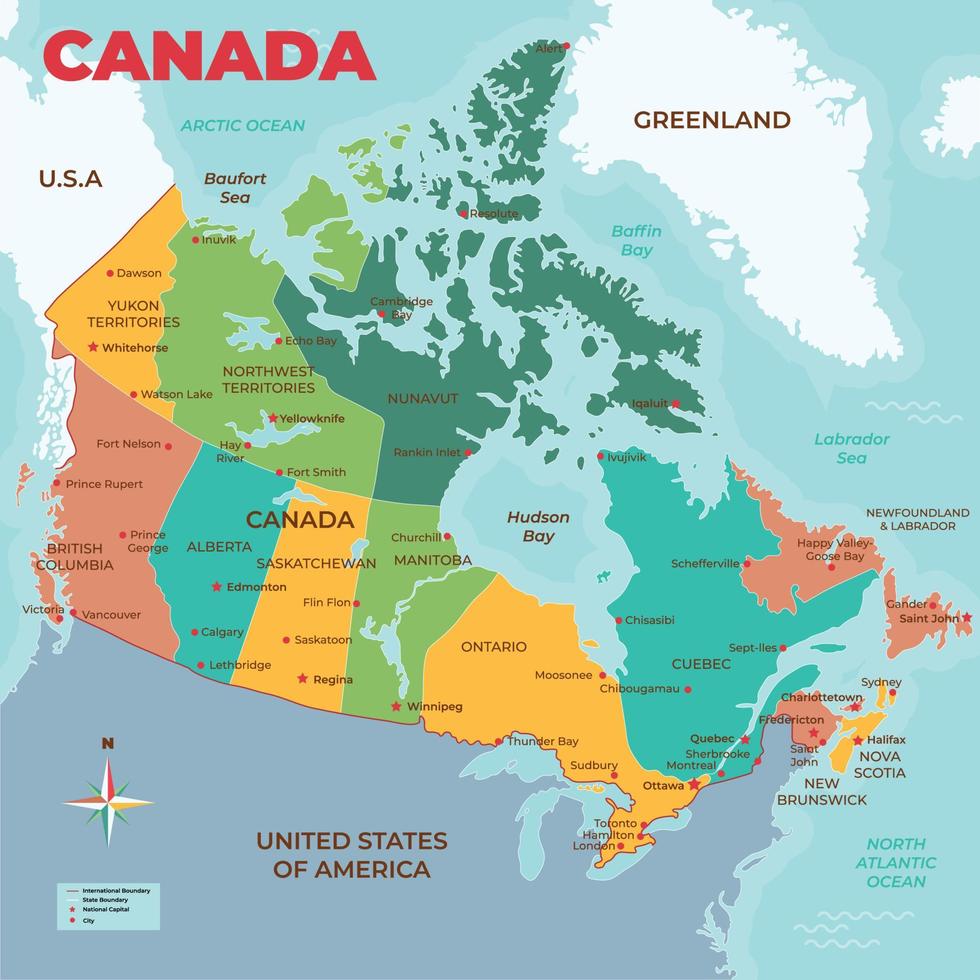Canada Men's National Soccer Team: A Nation's Journey On The Pitch
The Canada men's national soccer team, often called the CanMNT, has, in some respects, truly captured the hearts of a nation known for its vast, stunning natural beauty and its very welcoming spirit. For a country as immense as Canada, stretching from the Atlantic Ocean to the Pacific Ocean and northward into the Arctic, the team's journey on the global stage reflects a growing sense of national pride and ambition. This squad represents a diverse, progressive, and peaceful nation, uniting people across its ten provinces and three territories, from bustling cities to the pristine wilderness, all cheering for a shared dream.
You know, it's almost a unique story, this rise of Canadian soccer. For a long time, the sport, while popular, didn't quite have the same national spotlight as, say, ice hockey. Yet, the CanMNT has shown remarkable growth, building on dedication and a clear vision. Their recent successes, particularly in World Cup qualification, have really put them on the map, both at home and internationally, and that, is that, a truly exciting development.
This article will explore the path of the Canada men's national soccer team, looking at its rich history, the key moments that shaped its identity, and the bright future that lies ahead. We'll touch on the players who've made a real impact, the challenges they've faced, and how the team embodies the very spirit of Canada itself, a country known for its resilience and its place in major international institutions. So, let's take a closer look at what makes this team so special, shall we?
- Descargar Video De Instagram
- Good Day Forrest Frank
- Four Seasons Orlando Baby
- Minecraft Cherry Blossom House
- Whistle Express Car Wash
Table of Contents
- The Early Days and Foundations
- Rising Through the Ranks: Key Moments
- The Golden Generation and World Cup Return
- Canada as a Global Host: The 2026 World Cup
- The Impact on Canadian Soccer Culture
- Looking Ahead: The Future of the CanMNT
- Frequently Asked Questions About the CanMNT
- Conclusion
The Early Days and Foundations
The story of the Canada men's national soccer team began, in a way, quite a long time ago, with its first official match dating back to 1885. For many years, soccer in Canada, much like the country's early development, was a bit of a grassroots effort, often played by immigrant communities who brought their love for the sport with them. Canada, a country that is the largest in North America and the second largest in the world in land area, had a vast territory to cover, and organizing a truly national soccer program was, in some respects, a significant undertaking.
Throughout the 20th century, the team had moments of promise, but consistent success on the international stage was, you know, rather elusive. The focus often remained on regional competitions, and the team faced the challenge of competing against more established soccer nations, especially its neighbor to the south, the United States, with whom Canada has a long and complex relationship. Getting quick, easy access to all government of Canada services and information was one thing, but building a national sports program from scratch was quite another, requiring dedication and sustained effort over decades.
Despite these challenges, the foundational work was laid. Leagues developed, players honed their skills, and the dream of seeing Canada compete with the best in the world never truly faded. It was a slow burn, perhaps, but the seeds for future growth were definitely planted during these early periods, setting the stage for what was to come. Many people, it seems, held onto that hope.
- Dominican Restaurant Near Me
- Cách Tạo Tài Khoản Flow
- Slide Rock State Park
- Thundr Omegle
- Cronología De Inter Milan Contra Fc Barcelona
Rising Through the Ranks: Key Moments
One of the earliest significant achievements for the Canada men's national soccer team came in 1986, when they, very impressively, qualified for the FIFA World Cup in Mexico. This was a truly historic moment, representing the first time the team had reached the sport's biggest tournament. It was, in some respects, a huge breakthrough, showing that Canada, despite its great size and the challenges of developing soccer across such a wide expanse, could compete at the highest level.
While their performance in the tournament itself didn't see them advance past the group stage, the experience was, you know, absolutely invaluable. It gave the players and the nation a taste of what was possible and, in a way, ignited a spark. This qualification, many would agree, proved that Canadian athletes could stand shoulder to shoulder with the world's best, embodying the resilient spirit of a nation known for its vast and varied landscapes, a place for both bucket list adventure and quiet reflection.
Years later, another major milestone arrived with the CONCACAF Gold Cup victory in 2000. This triumph, a rather unexpected one for many, showed that the team could, actually, win major regional tournaments. It was a testament to the hard work and determination of the players and coaching staff, giving Canadian soccer a significant boost and, in a way, reinforcing the idea that success was not just a fleeting dream but an achievable goal. This period, it seems, really helped to build confidence.
The Golden Generation and World Cup Return
The last few years have, quite frankly, been nothing short of transformative for the Canada men's national soccer team. A new crop of incredibly talented players, often referred to as a "golden generation," emerged, bringing with them a blend of skill, speed, and tactical intelligence. This group, you know, really started to turn heads, demonstrating a level of play that had many people talking. They represented the diverse fabric of Canada, a nation that stretches from the Atlantic Ocean in the east to the Pacific Ocean in the west, and northward into the Arctic Ocean, comprising ten provinces and three territories.
Their journey through the 2022 FIFA World Cup qualification campaign was, by all accounts, simply spectacular. They topped their qualification group, playing with a flair and confidence that was, in some respects, truly inspiring. This achievement marked their return to the World Cup stage after a 36-year absence, a moment that sparked immense national celebration. It was, arguably, one of the proudest moments for Canadian sports in recent memory, showing the world what a diverse, progressive, peaceful, and welcoming nation could achieve.
The team's participation in the 2022 World Cup in Qatar, while not resulting in advancement from the group, provided invaluable experience against some of the world's top teams. It was, in a way, a crucial learning curve, allowing the players to test their mettle on the biggest stage. The exposure, the pressure, and the sheer spectacle of it all, you know, will surely serve them well for future endeavors. It really showed them what it takes.
Key Players Who Shaped the Squad
The recent success of the Canada men's national soccer team is, without a doubt, tied to the emergence of several truly exceptional players. Alphonso Davies, for instance, is, you know, a name that immediately comes to mind. His incredible speed, skill, and ability to play in multiple positions have made him a global superstar and a true talisman for the team. He represents the very best of Canadian talent, often showcasing his abilities on the biggest club stages in Europe, which, in a way, elevates the profile of Canadian soccer.
Then there's Jonathan David, a prolific goal scorer whose clinical finishing has, frankly, been vital for the team's attacking prowess. His consistent performance at the club level and his ability to find the back of the net for Canada have made him, in some respects, indispensable. Cyle Larin, another key forward, has also contributed significantly with his goals, providing a strong presence up front and forming a formidable partnership with David. These players, together, have created a dynamic and exciting offense.
Midfielders like Stephen Eustáquio and Tajon Buchanan, too, have played crucial roles, controlling the tempo of games and providing creativity. Their ability to link defense with attack and their tireless work rate have been, you know, absolutely essential to the team's structure and success. The blend of youth and experience, combined with their individual talents, has created a cohesive unit that, in a way, truly embodies the collective spirit of Canada itself, a country known for its large mountain ranges and extensive coastlines.
Tactical Approaches and Coaching Impact
The tactical evolution of the Canada men's national soccer team under recent coaching leadership has been, arguably, a major factor in their ascent. Coaches have, in some respects, implemented a clear and aggressive playing style, focusing on high-intensity pressing, quick transitions, and fluid attacking movements. This approach, you know, really suits the athleticism and skill set of the current crop of players, allowing them to play an exciting brand of soccer that keeps opponents on their toes.
A key aspect of their tactical setup has been the flexibility to adapt to different opponents and game situations. The team often utilizes various formations, depending on whether they are looking to dominate possession or hit teams on the counter-attack. This adaptability, it seems, has made them a challenging opponent for many teams, as they are not easily predictable. The coaching staff has, in a way, instilled a strong sense of belief and discipline within the squad, fostering a winning mentality.
Moreover, the emphasis on player development and creating a positive team environment has been, frankly, instrumental. The coaches have worked to ensure that players feel valued and understood, which, in turn, has led to greater cohesion and performance on the pitch. This focus on building a strong team culture, where every player contributes, truly reflects the collaborative spirit often found in Canada, a parliamentary democracy and a constitutional monarchy with King Charles III as its head of state.
Canada as a Global Host: The 2026 World Cup
Looking ahead, one of the most exciting prospects for Canadian soccer is, without a doubt, co-hosting the 2026 FIFA World Cup alongside the United States and Mexico. This event will be, in some respects, a truly monumental occasion for Canada, providing an unprecedented opportunity to showcase the country's passion for the sport on a global scale. Canada, a commonwealth realm member of the Commonwealth of Nations and a member of the Francophonie, will welcome the world to its shores.
The fact that Canada, a nation known for its vastness and its diverse communities, will host matches in major cities means that fans from all over the world will experience its unique culture and hospitality. Tourist facilities are widely available in much of the country, ensuring visitors will have a comfortable and enjoyable stay. This co-hosting role is, you know, a huge testament to the country's growing influence in international sports and its ability to manage large-scale global events.
For the Canada men's national soccer team, this means automatic qualification for the tournament, a massive advantage. It provides them with years to prepare, develop their squad, and, in a way, truly aim for a strong performance on home soil. The excitement building around 2026 is, frankly, palpable, and it will undoubtedly inspire a new generation of Canadian soccer players and fans. It's almost a chance to redefine the nation's place in the soccer world.
The Impact on Canadian Soccer Culture
The recent successes of the Canada men's national soccer team have had, you know, a truly profound impact on the country's soccer culture. Suddenly, more children are playing the sport, dreaming of one day representing their nation. The visibility of the team on television and in the news has, in some respects, significantly raised the profile of soccer across Canada, from coast to coast to coast. This increased interest is, actually, a fantastic development for the sport.
There's a growing sense of national pride associated with the team, uniting Canadians from various backgrounds. When the CanMNT plays, you see people gathering in pubs, community centers, and homes, all cheering together. This collective experience, in a way, strengthens community bonds and fosters a shared identity, much like how Canada itself, a federation now comprising ten provinces and three territories, brings together diverse regions under one flag. It's a powerful unifying force.
Furthermore, the success has led to increased investment in youth development programs and infrastructure. More resources are being allocated to identify and nurture young talent, ensuring a sustainable pipeline of players for the national team. This focus on the future is, frankly, essential for continued growth and success, and it shows a long-term commitment to making Canada a strong soccer nation. It's almost like a ripple effect, spreading enthusiasm far and wide.
Looking Ahead: The Future of the CanMNT
The future of the Canada men's national soccer team looks, quite honestly, very bright. With a core group of talented young players, strong coaching, and the massive boost of co-hosting the 2026 World Cup, the team is, in some respects, poised for continued success. The experience gained from recent international competitions will be invaluable as they continue to develop and refine their game. This period, you know, feels like a real turning point for Canadian soccer.
The ongoing development of professional leagues within Canada, such as the Canadian Premier League, also plays a crucial role. These leagues provide platforms for Canadian players to gain valuable playing time and experience at a high level, without having to leave the country. This domestic growth, in a way, strengthens the entire soccer ecosystem, creating more opportunities for talent to emerge and flourish. It's a virtuous cycle, really, building from the ground up.
As Canada continues to embrace its identity as a soccer nation, the CanMNT will, undoubtedly, continue to inspire and unite its people. The team's journey is a reflection of Canada's own story: diverse, resilient, and always striving for excellence on the global stage. It's a truly exciting time to be a fan of Canadian soccer, with many more thrilling moments surely ahead. Learn more about Canadian sports on our site, and link to this page for more details on the team's roster.
Frequently Asked Questions About the CanMNT
When did the Canada men's national soccer team first qualify for the World Cup?
The Canada men's national soccer team, in some respects, first qualified for the FIFA World Cup in 1986. This historic achievement saw them compete in the tournament held in Mexico, marking their debut on the global stage. It was, you know, a really significant moment for Canadian soccer, showing the world what the team could do.
Who are some of the most famous players on the current Canada men's national soccer team?
Currently, some of the most famous players on the Canada men's national soccer team include, you know, Alphonso Davies, known for his incredible speed and skill, and Jonathan David, a very prolific goal scorer. Cyle Larin and Stephen Eustáquio are also, in some respects, key figures who contribute significantly to the team's success, bringing a lot of talent to the squad.
What is the significance of Canada co-hosting the 2026 FIFA World Cup?
Co-hosting the 2026 FIFA World Cup is, frankly, a massive opportunity for Canada. It means the team automatically qualifies for the tournament, allowing them extended preparation time. More importantly, it provides an unparalleled platform to showcase Canada's vibrant culture and its growing passion for soccer to a global audience, which, you know, is a really big deal for the country.
For more official information on the Canada Men's National Soccer Team, you can visit the Canada Soccer website.
- Sid From Toy Story
- Cast Of Kpop Demon Hunters
- Victoria Secret Credit Card
- La La Land Cafe
- Descargar Video De Instagram

Canada - What you need to know before you go - Go Guides

Canada Map | HD Political Map of Canada

Detailed Canada Map States and Union Teritories 21613541 Vector Art at